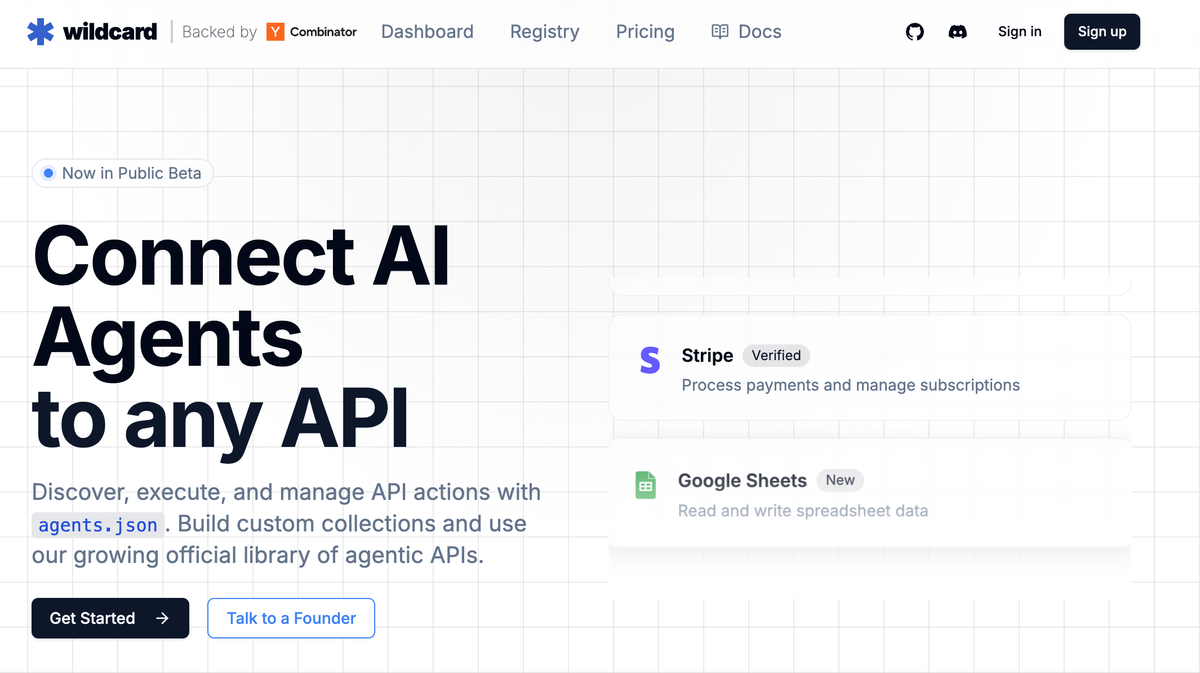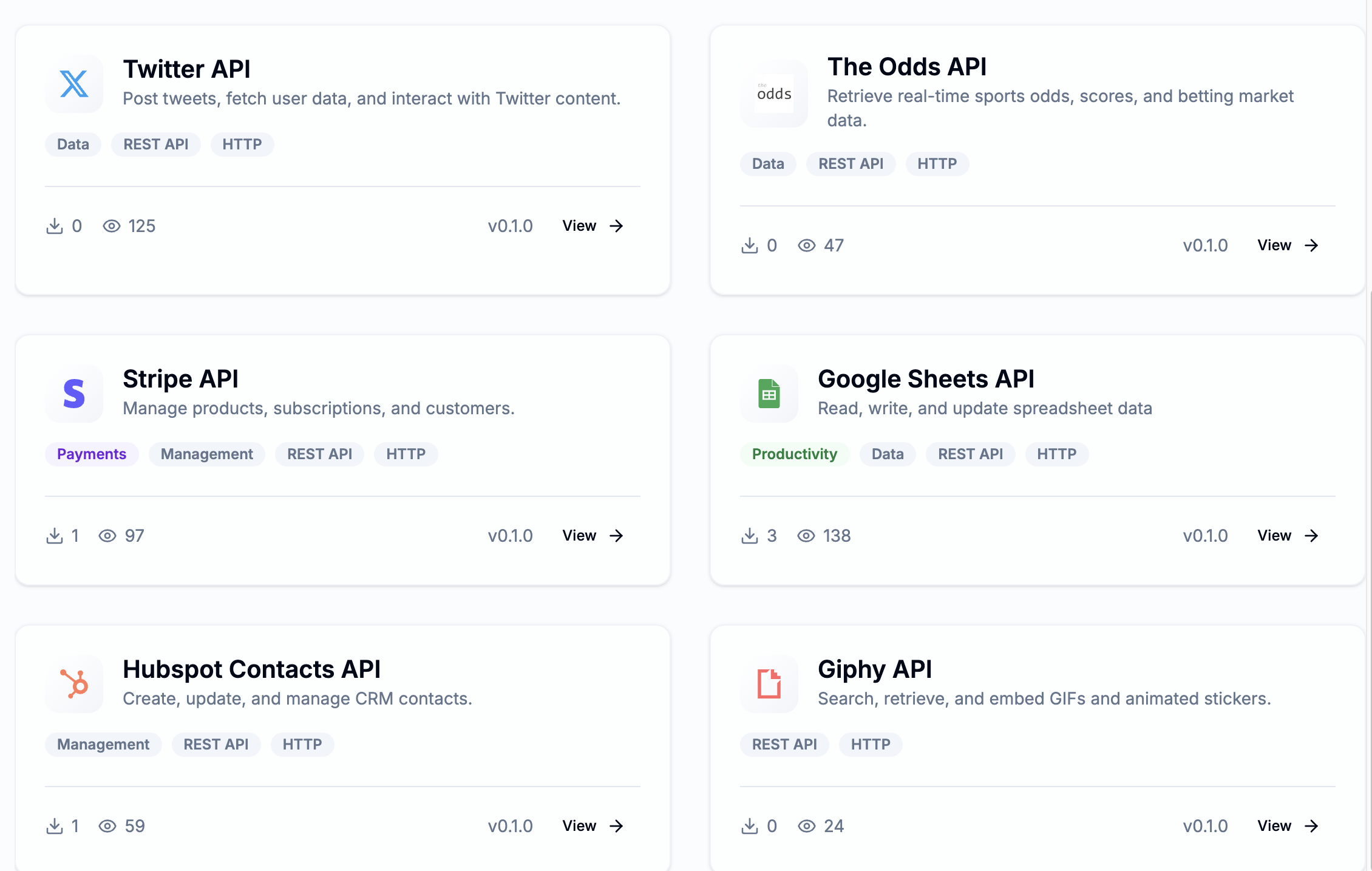Wildcard is the API repository for your AI Agent

There are plenty of API listings all over the place, and some of those sites do a really nice job. When you are trying to create an extensible capability with your agents and automatic systems, at some point you're going to want to be able to dynamically look up some capabilities and have your agents consume them in real-time.
That's one key use of wild-card.ai.
Theoretically, your AI agent can go to wild-card.ai, query it using natural language, and find the correct API to get stuff done.
So for example, I might want my agent to be able to connect to Google Sheets. It can simply go to wild-card.ai look up the Google sheet, API details, and proceed that way. Or I might tell my agent, "Can you make sure you update me via Slack?" So it's going to have to look up how to do that.
Technically, it is possible for an agent to go to various different websites, such as the Google API manual, and look up how it's meant to do it there. But what wild-card.ai is doing is making this as simple and as seamless as possible.
There are some practical challenges with this, and I'm looking at that from the point of view of someone who's been working in financial services for the longest time. You need to know that these APIs are correct and accurate, and so on. This is getting things started.
I can, for example, imagine subscribing to an enterprise-grade service from wild-card.ai that will let my AI agent surface and discover any API that I need it to use. But those APIs are ones I have either predefined or they have been checked and they are the correct ones that I want my agent to use. So, for example, if my AI agent needs to use Stripe, then I want it using THE right Stripe API, not other people's unofficial versions of that. There is a lot of conversation in the market about how this will and can work. Wild-card.ai has already deployed an official stamp for various different APIs to mark them out as reliable.
As a quick example, there is an official Resend API, which is helping you deliver transactional marketing emails at scale. And there's also a Slack API, which is marked as unofficial. (Although I should point out that that looks as though the Wildcard team made that, and in many cases, I think it's correct that Wildcard is making sure they've got API support for very popular services such as Slack.)
The question I'd be asking the wild-card.ai team is, "Okay, hold on a minute. How are you doing that? What does official mean? Is it bank-grade?"
I'd be wanting to know what kind of 'know-your-customer' ("KYC") activity they're doing to make sure that my agent is using the correct official API for any activities that I need.

If I were deploying my own AI agents, I would definitely subscribe to a wild-card official service that would limit my agent to only use wild-card approved APIs. But I'd be wanting Wildcard to be really, really clear about their approach to the definition of official.
So kudos to the team at wild-card.ai for bringing this to life.
If you represent an organisation that in the fullness of time, or perhaps immediately, would like AI agents querying your service and not your competitors, for example then now is the time to drop a note over to the founders at wild-card.ai and make sure you've got your API listed there.
Here's the video intro from co-founder Kaushik:
The other co-founder is Yagnya.
You can read more about Wildcard on the Conversational AI Marketplace.














